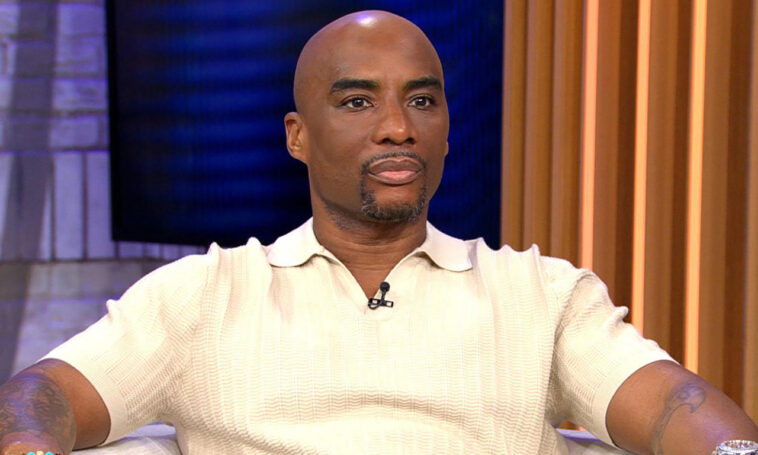Radio host Charlamagne tha God has weighed in on the ongoing debate over whether President Joe Biden should issue preemptive pardons to political figures who may find themselves targeted by the incoming Trump administration. Speaking on The Breakfast Club podcast, Charlamagne cautioned that such pardons could make Biden and those receiving them look guilty. The comment comes amid growing speculation that Biden may use his presidential power to offer protection to those who could be targeted by former President Donald Trump if he returns to office.
“I don’t think President Biden should do preemptive pardons either. Makes people look guilty if you ask me,” Charlamagne stated.
His remarks highlight a significant division within political circles, with some Democrats suggesting preemptive pardons are necessary to protect individuals who have faced political attacks, while others, including Charlamagne, argue that it could create a perception of guilt before any crimes have been proven.
The conversation over preemptive pardons has gained traction in recent months, particularly after Trump, who is currently running for president again, made comments hinting at revenge against those involved in investigating the January 6, 2021, Capitol riot. Members of the special House committee that investigated the attack on the Capitol have been discussed as potential candidates for preemptive pardons, with fears that they could be targeted if Trump regains power.
During his podcast appearance, Charlamagne questioned the rationale behind offering pardons before any wrongdoing has occurred. “It seems strange to do preemptive pardons if no wrong was done,” he said. “I just don’t understand why you would give somebody a preemptive pardon, like it just feels like he was saying, ‘OK, I know this person is guilty for something and Trump may go after them.’” In his view, issuing such pardons could create the appearance of trying to shield someone from potential legal consequences before any formal charges have been made.
Instead of preemptive pardons for political figures, Charlamagne suggested that President Biden should focus on pardoning individuals who have been convicted of nonviolent crimes, particularly drug offenses. He specifically called for pardons for those incarcerated for nonviolent weed convictions, which has been a hot topic of debate among progressives for years. “Biden should be pardoning all the nonviolent drug offenders in federal prison. He should be pardoning everybody in federal prison for nonviolent weed convictions, OK?” Charlamagne stated. This suggestion is consistent with his long-standing advocacy for criminal justice reform and addressing racial disparities in the legal system.
Charlamagne also mentioned Marilyn Mosby, the former Baltimore City State Attorney who was convicted of mortgage fraud and perjury earlier this year. While Mosby’s case has been controversial, many of her supporters, including members of the Congressional Black Caucus and civil rights leaders, have called for a pardon, arguing that her conviction was politically motivated and part of an effort to discredit her during Trump’s presidency. Activists like Ben Crump, the Rev. Al Sharpton, and Angela Rye have all rallied behind Mosby, urging President Biden to consider a pardon as a way to correct what they believe was a politically-driven prosecution.
Despite the differing views, the issue of pardons, particularly preemptive ones, has sparked significant debate. Those in favor of pardoning political figures argue that such actions are necessary to prevent politically motivated retaliation if Trump were to return to the White House. On the other hand, critics like Charlamagne believe that issuing pardons without evidence of wrongdoing can send the wrong message and create the appearance of guilt.
The debate is not only about the legal implications but also about how it could affect public trust in the justice system. Charlamagne’s comments reflect a broader concern that preemptive pardons might undermine the credibility of the president and the fairness of the legal process.
In the end, the question of whether Biden should issue preemptive pardons remains unresolved. As the political landscape continues to evolve and the 2024 election approaches, it is clear that these discussions will continue to play a significant role in shaping the narrative surrounding justice, power, and accountability in America.




Join the Community and Be a Part of the Conversation
You must be logged in or registered to post a comment.